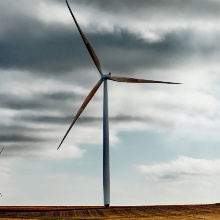Research Cooperations
Research network STRise
Energy research at ZIRIUS covers a wide range of empirical questions: Analyses of energy consumption and mobility behaviour of private households, examination of public attitudes towards energy-related issues (among others acceptance of different energy production technologies or the evaluation of future energy mixes).
We also explore how organisations shape or hinder the energy transition. In addition, we examine the relationship between external developments, such as social models and the energy transition.
The methodological, theoretical and conceptual approaches we use cover the entire spectrum of scientific disciplines and methodological orientations that ZIRIUS has established. Quantitative and qualitative methods of empirical social research, dialogical methods and scenario techniques are used in face-to-face events as well as online.
Much of the research in the field of energy at ZIRIUS is interdisciplinary or transdisciplinary. Of particular importance is the cooperation with our partners in the STRise research network.
Further Projects
Current Projects of this Research Area
The objective of the research project ‘InvestAgent’ is to investigate how investment decisions in the renewable power sector can be modeled as realistically as possible and whether the decisions made in the model can contribute to the achievement of current climate targets as well as long-term security of supply. The focus of the analyses is on investment decisions in renewable generation units and flexible capacities with a special focus on modeling uncertain future revenue and cost expectations.
CampUS exponent i is a real-world laboratory focussing on climate neutrality by investigating sustainable planning processes using intelligent control systems for buildings.
The MANIFOLD project aims to enable energy system models, despite their primarily techno-economic focus, to better take into account the results of quantitative and qualitative empirical socio-economic analyses of the behaviour of actors in the context of the energy system transformation and, above all, to do so with less methodological effort.
In the joint project, an interdisciplinary and transdisciplinary concept for the resilient design of the digital energy transition is to be developed with scientific and practical experts, as well as a resilience monitoring, the core of which is a stress test instrument. The main focus of the project is the development of this system-analytical instrument and the concept of its social integration.
The joint project SyKonaS develops a fundamental, conceptual and methodological approach for the analysis of actor conflicts in energy transition pathways. To this end, the CIB Lab analysis the interactions between conflicts on different levels of the transformation process on the one hand, and the institutional, technical, economic and legal framework conditions on the other hand (conflict lines). In order to support the knowledge gain with practical knowledge, stakeholders are involved who contribute to the identification of conflicts, the assessment of systemic interactions and the development of solutions.
Multi-stage scenario creation using cross-impact-balance analysis (CIB) and REMix, taking into account path changes and disruptions
Members Research Area Energy
Contact

Sandra Wassermann
M.A.Spokesperson Research Area Energy
Sabine Mücke
Office














